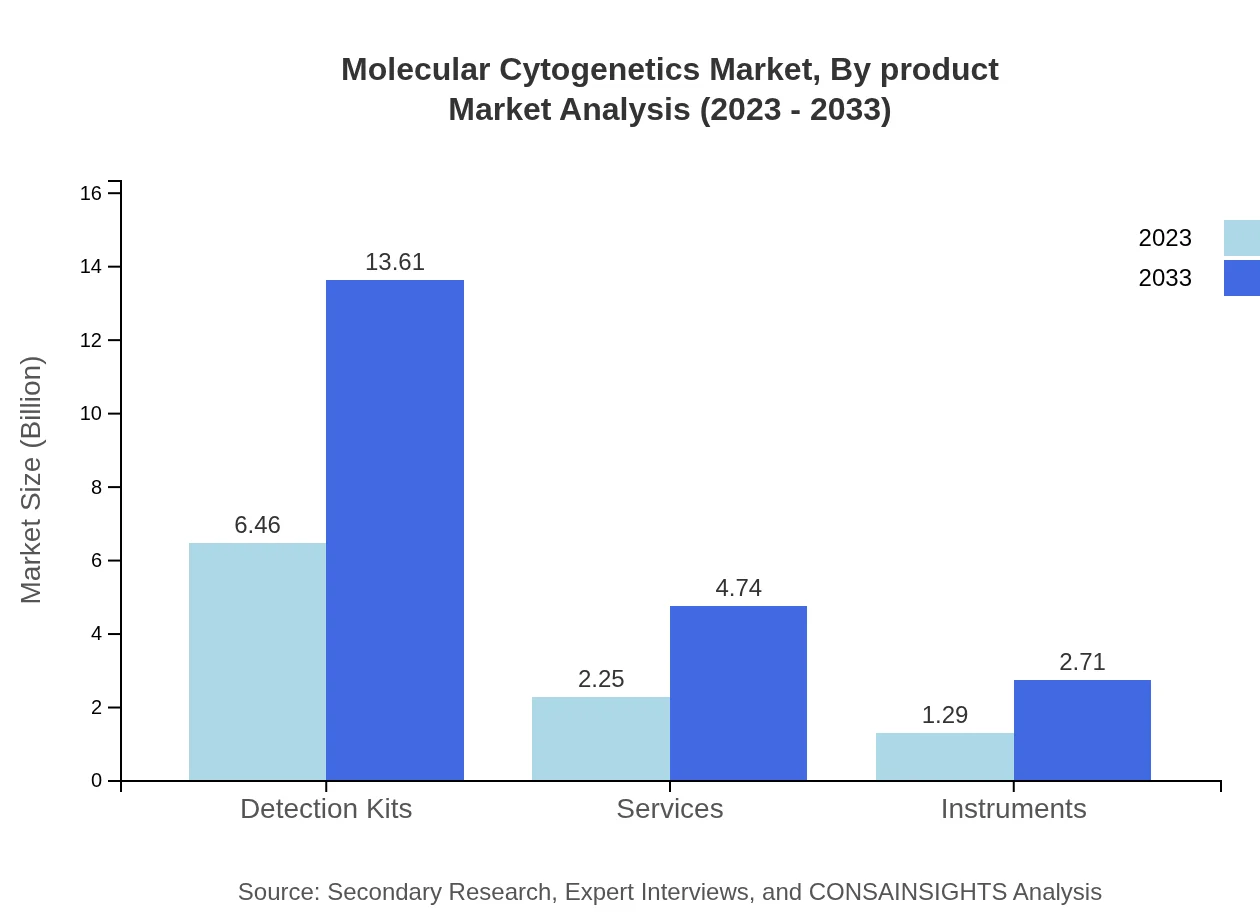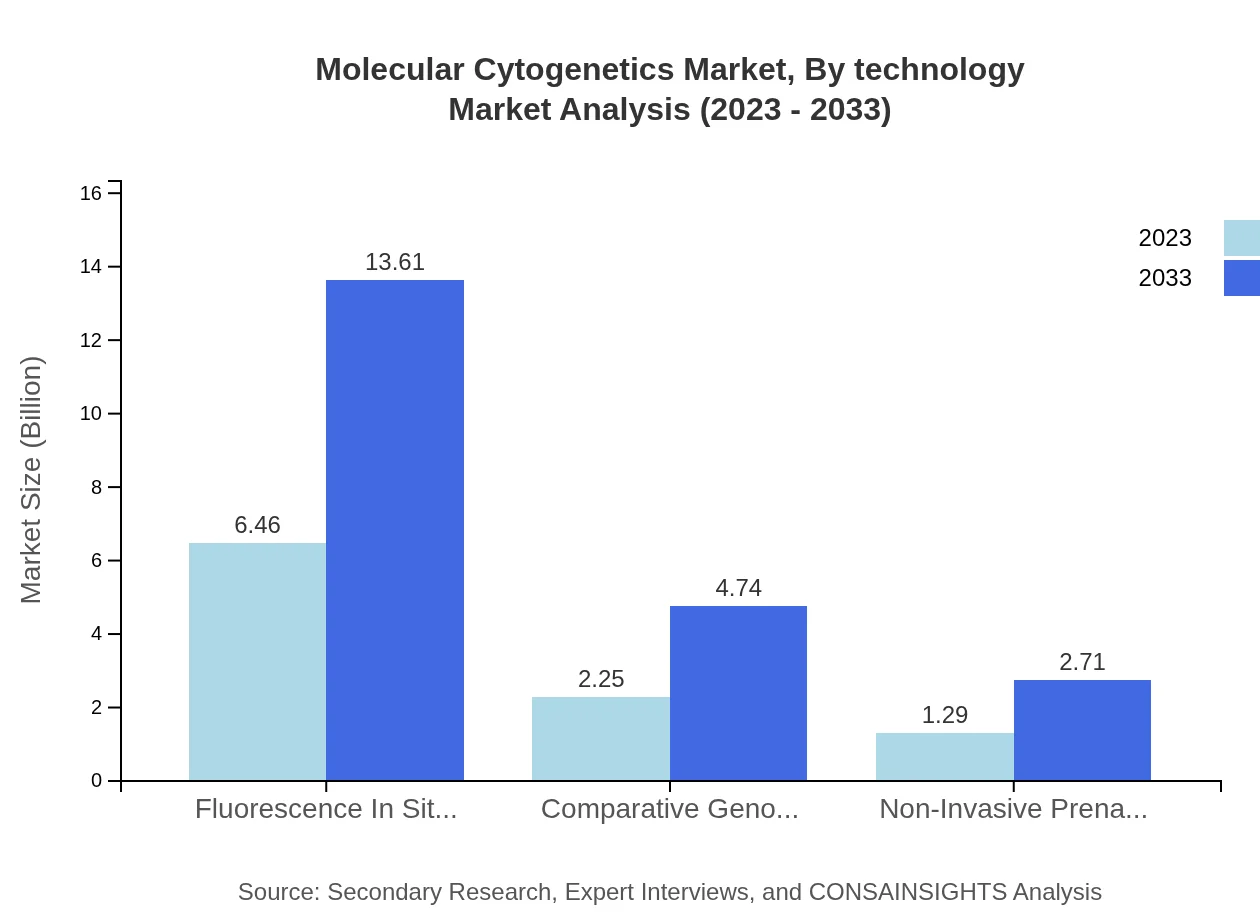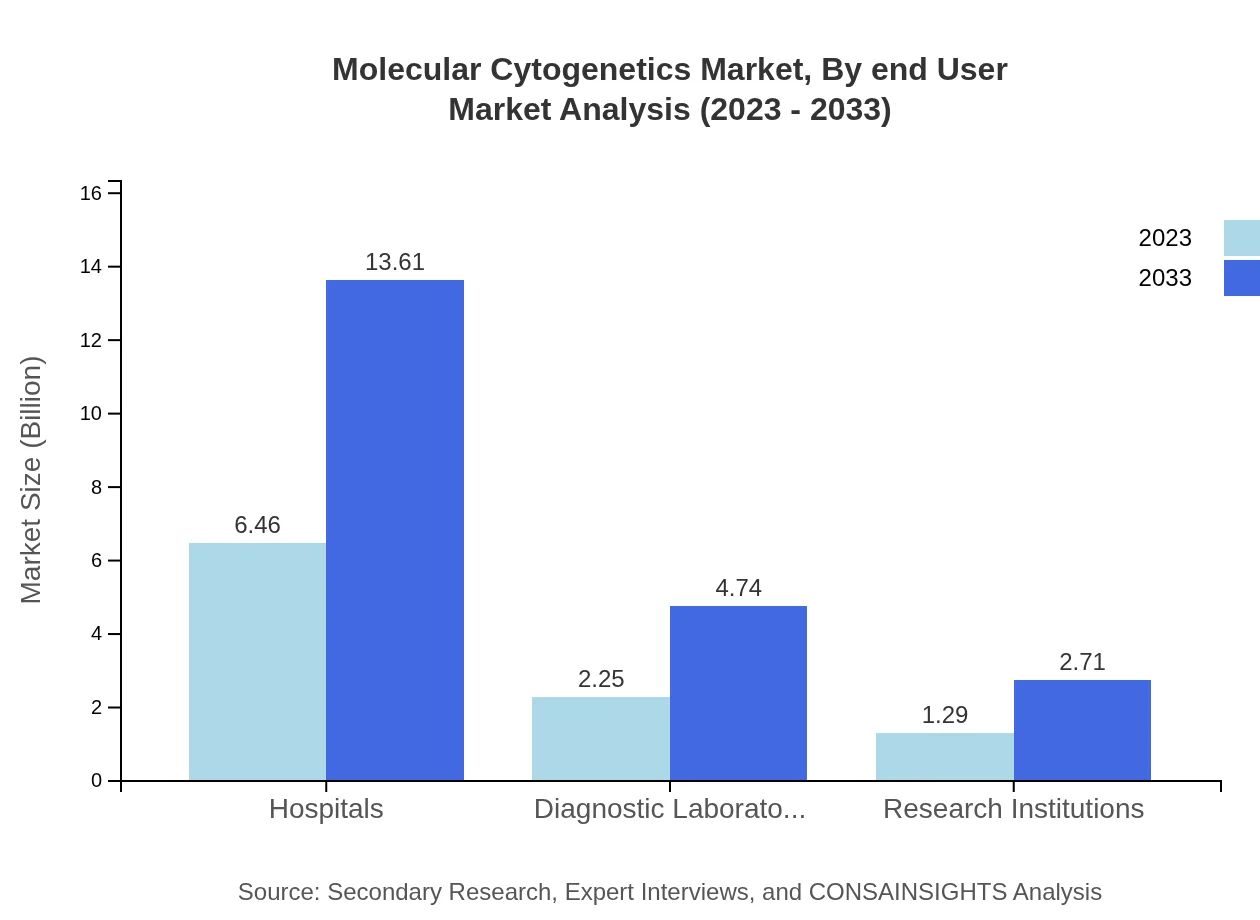Molecular Cytogenetics Market Report
Published Date: 31 January 2026 | Report Code: molecular-cytogenetics
Molecular Cytogenetics Market Size, Share, Industry Trends and Forecast to 2033
This report provides a comprehensive analysis of the Molecular Cytogenetics market, covering insights on market size, industry trends, and regional dynamics from 2023 to 2033. It aims to equip stakeholders with data-driven projections to navigate this evolving field.
| Metric | Value |
|---|---|
| Study Period | 2023 - 2033 |
| 2023 Market Size | $10.00 Billion |
| CAGR (2023-2033) | 7.5% |
| 2033 Market Size | $21.05 Billion |
| Top Companies | Thermo Fisher Scientific, Illumina, Agilent Technologies, Roche, Bio-Rad Laboratories |
| Last Modified Date | 31 January 2026 |
Molecular Cytogenetics Market Overview
Customize Molecular Cytogenetics Market Report market research report
- ✔ Get in-depth analysis of Molecular Cytogenetics market size, growth, and forecasts.
- ✔ Understand Molecular Cytogenetics's regional dynamics and industry-specific trends.
- ✔ Identify potential applications, end-user demand, and growth segments in Molecular Cytogenetics
What is the Market Size & CAGR of the Molecular Cytogenetics market in 2023?
Molecular Cytogenetics Industry Analysis
Molecular Cytogenetics Market Segmentation and Scope
Tell us your focus area and get a customized research report.
Molecular Cytogenetics Market Analysis Report by Region
Europe Molecular Cytogenetics Market Report:
The European market for Molecular Cytogenetics, which is currently valued at $2.69 billion, is anticipated to reach $5.66 billion by 2033. Increasing awareness and effective regulations stimulate market expansion across the continent.Asia Pacific Molecular Cytogenetics Market Report:
In the Asia Pacific region, the Molecular Cytogenetics market is poised for substantial growth, expanding from $2.14 billion in 2023 to an estimated $4.51 billion by 2033. Increased healthcare investments and a rising population demand for genetic testing contribute to this region's market expansion.North America Molecular Cytogenetics Market Report:
In North America, market growth is significant, projected to rise from $3.60 billion in 2023 to $7.59 billion in 2033. The region's extensive research facilities and high demand for genetic testing largely boost the market.South America Molecular Cytogenetics Market Report:
The South American market is expected to grow from $0.84 billion in 2023 to $1.77 billion by 2033, driven primarily by improving healthcare access and research infrastructure that supports cytogenetics.Middle East & Africa Molecular Cytogenetics Market Report:
The Middle East and Africa segment, while smaller with a market size of $0.72 billion in 2023, is expected to grow to $1.52 billion by 2033, as healthcare infrastructure and genetic research capability steadily improve in this region.Tell us your focus area and get a customized research report.
Molecular Cytogenetics Market Analysis By Product
Detection kits are leading the Molecular Cytogenetics market, with a size projected to reach $13.61 billion by 2033, up from $6.46 billion in 2023, holding a substantial 64.63% market share. Other products include instruments and services, with noteworthy growth observed in services, expected to grow from $2.25 billion to $4.74 billion over the same period.
Molecular Cytogenetics Market Analysis By Application
The oncology application leads with a market size of $5.73 billion in 2023 and projected growth to $12.05 billion in 2033, claiming a 57.26% share of the market. Genetic disorder applications follow closely behind, growing from $2.29 billion to $4.83 billion, while reproductive health and transplantation segments show emerging growth trends as awareness increases.
Molecular Cytogenetics Market Analysis By Technology
Technologies such as fluorescence in situ hybridization (FISH) and comparative genomic hybridization (CGH) dominate the market, with FISH expected to rise to $13.61 billion by 2033. These technologies are pivotal due to their precision in detecting chromosomal abnormalities, which are critical in oncology and genetic disorder diagnostics.
Molecular Cytogenetics Market Analysis By End User
Hospitals represent the largest end-user segment, projected to maintain a market size of $13.61 billion alongside diagnostic laboratories growing to $4.74 billion by 2033. Research institutions contribute significantly as well, expanding from $1.29 billion to $2.71 billion, showcasing the versatile applications of cytogenetics in both clinical and research environments.
Molecular Cytogenetics Market Trends and Future Forecast
Tell us your focus area and get a customized research report.
Global Market Leaders and Top Companies in Molecular Cytogenetics Industry
Thermo Fisher Scientific:
A leading provider of analytical instruments, reagents, and consumables for laboratories worldwide, known for its innovations in genetic testing technologies.Illumina:
Specializes in sequencing and array-based solutions for genetic and genomic analysis, contributing significantly to the advancement of molecular cytogenetics.Agilent Technologies:
Offers a broad array of cytogenetic products, including FISH and CGH solutions, aimed at improving diagnostic accuracy and efficiency.Roche:
Focused on personalized healthcare and precision diagnostics, developing innovative products in the field of molecular cytogenetics.Bio-Rad Laboratories:
Delivering a wide range of biotechnology products, Bio-Rad plays a vital role in developing diagnostic kits and assay systems in cytogenetics.We're grateful to work with incredible clients.









FAQs
What is the market size of molecular Cytogenetics?
The molecular cytogenetics market is valued at approximately $10 billion in 2023, with a projected CAGR of 7.5% over the next decade, indicating robust growth in the sector.
What are the key market players or companies in this molecular Cytogenetics industry?
Key players in the molecular cytogenetics industry include leading biotechnology companies, diagnostic labs, and specialized research institutions driving innovation and market expansion.
What are the primary factors driving the growth in the molecular Cytogenetics industry?
Growth in the molecular cytogenetics sector is driven by advancements in technology, increasing prevalence of genetic disorders, and rising demand for personalized medicine solutions across various healthcare segments.
Which region is the fastest Growing in the molecular Cytogenetics?
The Asia Pacific region is the fastest-growing market for molecular cytogenetics, expected to expand from $2.14 billion in 2023 to $4.51 billion by 2033, showcasing significant development potential.
Does ConsaInsights provide customized market report data for the molecular Cytogenetics industry?
Yes, ConsaInsights offers customized market report data tailored to specific client needs, covering various aspects of the molecular cytogenetics industry, allowing for detailed insights.
What deliverables can I expect from this molecular Cytogenetics market research project?
Expect comprehensive deliverables including market reports, competitive analysis, segmentation insights, and future growth forecasts within the molecular cytogenetics industry.
What are the market trends of molecular Cytogenetics?
Current trends in molecular cytogenetics include a rising focus on oncology applications, increased adoption of non-invasive prenatal testing, and innovations in detection technologies driving the market forward.





